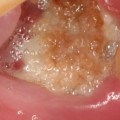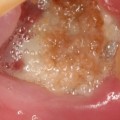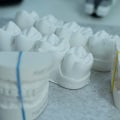When it comes to tooth extraction, the recovery process can vary depending on the complexity of the case. For a simple extraction, you can expect to recover within 7 to 10 days. However, for an impacted wisdom tooth, it may take up to 14 days to recover from surgery. Even after you return to your normal activities, your mouth needs more time to finish healing and the full recovery of an impacted tooth can take up to 3 months.
In the case of a simple extraction (which consists of removing a tooth that has already come out of the mouth), the recovery process is usually very brief. Your oral surgeon will usually ask you to take at least 48 to 72 hours to relax afterwards so that the treatment area is allowed to clot. After that, you should be able to return to normal physical activity and the soft tissue will heal completely in about 3 to 4 weeks. If you're planning to replace your tooth extraction with a dental implant, you'll probably have to wait a few months before you can fully recover.
The initial healing period usually takes one to two weeks and new bone and gum tissue will form in the space. However, over time, the lack of a tooth (or teeth) can cause the remaining teeth to move, affecting the bite and making it difficult to chew. If tooth decay or damage spreads to the pulp (the center of the tooth that contains nerves and blood vessels), bacteria from the mouth can enter the pulp and cause infection. While tooth extractions are a safe and simple procedure, the initial recovery period from surgery can last between one and two weeks.
But sometimes, extracting a tooth is the best way to get rid of the infection and get back to a healthy smile and life. Dentists and some dental specialists, such as oral surgeons and periodontists, can perform tooth extractions. Sometimes, the dentist may need to make incisions in the gums to access the tooth, especially if it is badly decayed or has broken at the gum line. If your immune system is compromised (for example, if you are receiving chemotherapy or are undergoing an organ transplant), even the risk of infection in a particular tooth may be reason enough for extraction. When a patient has undergone a surgical extraction (in which a tooth that is still inside the gums and maxillary bone is removed), the recovery process takes a little longer. If you've already had a tooth extraction, call your dentist if you have a fever of 38 degrees Celsius (100.4 degrees Fahrenheit) or higher, drainage (pus) around the extraction site, or severe pain that doesn't improve with medications. While permanent teeth are meant to last a lifetime, there are several reasons why tooth extraction may be necessary.
To learn more about tooth extractions and strategies you can use to avoid them, contact your dentist for more information.






